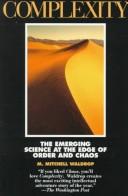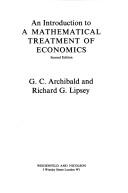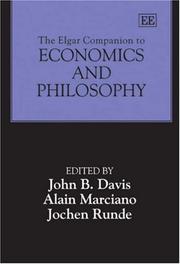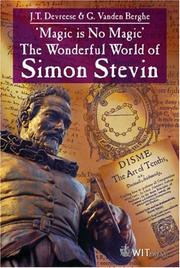| Listing 1 - 10 of 14 | << page >> |
Sort by
|

ISBN: 2080813080 9782080813084 Year: 1995 Volume: 308 Publisher: Paris : Flammarion,
Abstract | Keywords | Export | Availability | Bookmark
 Loading...
Loading...Choose an application
- Reference Manager
- EndNote
- RefWorks (Direct export to RefWorks)
Book
ISBN: 2878940040 Year: 1993 Publisher: Paris Romillat
Abstract | Keywords | Export | Availability | Bookmark
 Loading...
Loading...Choose an application
- Reference Manager
- EndNote
- RefWorks (Direct export to RefWorks)
AA / International- internationaal --- 330.00 --- 50 --- Economische en sociale theorieën: algemeenheden. --- Algemeenheden. Geschiedenis en filosofie van de wetenschappen. --- Economic policy and planning (general) --- Belgium --- Economische en sociale theorieën: algemeenheden --- Algemeenheden. Geschiedenis en filosofie van de wetenschappen
Book
ISBN: 9780823268672 9780823268665 0823268667 0823268675 Year: 2016 Publisher: New York Fordham University Press
Abstract | Keywords | Export | Availability | Bookmark
 Loading...
Loading...Choose an application
- Reference Manager
- EndNote
- RefWorks (Direct export to RefWorks)
This book examines the affinity between "theory" and "deconstruction" that developed in the American academy in the 1970s by way of the "Yale Critics": Harold Bloom, Paul de Man, Geoffrey Hartman, and J. Hillis Miller, sometimes joined by the French philosopher Jacques Derrida. With this semi-fictional collective, theory became a media event, first in the academy and then in the wider print media, in and through its phantasmatic link with deconstruction and with "Yale." The important role played by aesthetic humanism in American pedagogical discourse provides a context for understanding theory as an aesthetic scandal, and an examination of the ways in which de Man's work challenges aesthetic pieties helps us understand why, by the 1980s, he above all had come to personify "theory." Combining a broad account of the "Yale Critics" phenomenon with a series of careful re-examinations of the event of theory, Redfield traces the threat posed by language's unreliability and inhumanity in chapters on lyric, on Hartman's representation of the Wordsworthian imagination, on Bloom's early theory of influence in the 1970s together with his later media reinvention as the genius of the Western Canon, and on John Guillory's influential attempt to interpret de Manian theory as a symptom of literature's increasing marginality. A final chapter examines Mark Tansey's paintings "Derrida Queries de Man" and "Constructing the Grand Canyon", works that offer subtle, complex reflections on the peculiar event of theory as-deconstruction in America"
Deconstruction. --- Criticism. --- Literary criticism --- Philosophy --- Semiotics & Theory. --- European --- General. --- Movements --- 50 --- 059 --- Algemeenheden. Geschiedenis en filosofie van de wetenschappen --- Diverse publicaties (varia)
Book
ISBN: 9075652151 Year: 1999 Publisher: Bruxelles = Brussel Académie royale des sciences d'outre-mer Koninklijke Academie voor Overzeese Wetenschappen
Abstract | Keywords | Export | Availability | Bookmark
 Loading...
Loading...Choose an application
- Reference Manager
- EndNote
- RefWorks (Direct export to RefWorks)
Colloques --- Colloquia --- Recherche scientifique --- Sciences --- Wetenschappelijk onderzoek --- Wetenschappen --- AA / International- internationaal --- 50 --- 338.8 --- 338.043 --- 338.6 --- Algemeenheden. Geschiedenis en filosofie van de wetenschappen. --- Economische groei. --- Technologische vooruitgang. Automatisering. Computers. Werkgelegenheid en informatica. --- Wetenschappelijk onderzoek en ontwikkeling. --- Science --- Developing countries --- Congresses --- Technology --- Research --- Algemeenheden. Geschiedenis en filosofie van de wetenschappen --- Economische groei --- Technologische vooruitgang. Automatisering. Computers. Werkgelegenheid en informatica --- Wetenschappelijk onderzoek en ontwikkeling

ISBN: 0671767895 0671872346 9780671767891 9780671872342 Year: 1992 Publisher: New York, NY : Simon and Schuster,
Abstract | Keywords | Export | Availability | Bookmark
 Loading...
Loading...Choose an application
- Reference Manager
- EndNote
- RefWorks (Direct export to RefWorks)
Why did the stock market crash more than 500 points on a single Monday in 1987? Why do ancient species often remain stable in the fossil record for millions of years and then suddenly disappear? In a world where nice guys often finish last, why do humans value trust and cooperation? At first glance these questions don't appear to have anything in common, but in fact every one of these statements refers to a complex system. The science of complexity studies how single elements, such as a species or a stock, spontaneously organize into complicated structures like ecosystems and economies; stars become galaxies, and snowflakes avalanches almost as if these systems were obeying a hidden yearning for order. Drawing from diverse fields, scientific luminaries such as Nobel Laureates Murray Gell-Mann and Kenneth Arrow are studying complexity at a think tank called The Santa Fe Institute. The revolutionary new discoveries researchers have made there could change the face of every science from biology to cosmology to economics. M. Mitchell Waldrop's groundbreaking bestseller takes readers into the hearts and minds of these scientists to tell the story behind this scientific revolution as it unfolds.
Science --- Complexity (Philosophy) --- Philosophy. --- 124.1 --- #SBIB:1H20 --- Ordening. Chaos --- Metafysica en wijsgerige godsleer --- 124.1 Ordening. Chaos --- Complexiteit (Filosofie) --- Algemeenheden. Geschiedenis en filosofie van de wetenschappen. --- Normal science --- Philosophy of science --- Philosophy --- Emergence (Philosophy) --- Complexity (Philosophy). --- Science - Philosophy. --- 50 --- AA / International- internationaal --- Algemeenheden. Geschiedenis en filosofie van de wetenschappen --- Science - Philosophy --- COMPLEXITY (PHILOSOPHY) --- SCIENCE --- PHILOSOPHY

ISBN: 2852038374 Year: 1997 Volume: 2
Abstract | Keywords | Export | Availability | Bookmark
 Loading...
Loading...Choose an application
- Reference Manager
- EndNote
- RefWorks (Direct export to RefWorks)
AA / International- internationaal --- 50 --- 201 --- 10 --- Algemeenheden. Geschiedenis en filosofie van de wetenschappen. --- Sociologie: algemeenheden. --- Wijsbegeerte. --- Language and languages --- Manuscripts, French --- Foreign languages --- Languages --- Anthropology --- Communication --- Ethnology --- Information theory --- Meaning (Psychology) --- Philology --- Linguistics --- Origin --- Wijsbegeerte --- Sociologie: algemeenheden --- Algemeenheden. Geschiedenis en filosofie van de wetenschappen --- Early works to 1800 --- Manuscripts [French ] --- Facsimiles
Book
ISBN: 9780674049710 0674049713 0674062752 9780674062757 Year: 2012 Publisher: Cambridge Harvard university press
Abstract | Keywords | Export | Availability | Bookmark
 Loading...
Loading...Choose an application
- Reference Manager
- EndNote
- RefWorks (Direct export to RefWorks)
The beauty of science may be pure and eternal, but the practice of science costs money. And scientists, being human, respond to incentives and costs, in money and glory. Choosing a research topic, deciding what papers to write and where to publish them, sticking with a familiar area or going into something new-the payoff may be tenure or a job at a highly ranked university or a prestigious award or a bump in salary. The risk may be not getting any of that.At a time when science is seen as an engine of economic growth, Paula Stephan brings a keen understanding of the ongoing cost-benefit calculations made by individuals and institutions as they compete for resources and reputation. She shows how universities offload risks by increasing the percentage of non-tenure-track faculty, requiring tenured faculty to pay salaries from outside grants, and staffing labs with foreign workers on temporary visas. With funding tight, investigators pursue safe projects rather than less fundable ones with uncertain but potentially path-breaking outcomes. Career prospects in science are increasingly dismal for the young because of ever-lengthening apprenticeships, scarcity of permanent academic positions, and the difficulty of getting funded.Vivid, thorough, and bold, How Economics Shapes Science highlights the growing gap between the haves and have-nots-especially the vast imbalance between the biomedical sciences and physics/engineering-and offers a persuasive vision of a more productive, more creative research system that would lead and benefit the world.
Science policy --- Sociology of knowledge --- Research --- Science and state. --- Recherche --- Politique scientifique et technique --- Economic aspects. --- Aspect économique --- AA / International- internationaal --- 476 --- 338.6 --- 50 --- education --- enseignement --- recherche et developpement --- Science --- State and science --- State, The --- Economie van de opvoeding. --- Wetenschappelijk onderzoek en ontwikkeling. --- Algemeenheden. Geschiedenis en filosofie van de wetenschappen. --- opvoeding --- onderwijs --- onderzoek en ontwikkeling --- Government policy --- Aspect économique --- Science and state --- Economic aspects --- Wetenschappelijk onderzoek en ontwikkeling --- Economie van de opvoeding --- Algemeenheden. Geschiedenis en filosofie van de wetenschappen

ISBN: 0297994786 0297995464 9780297994787 Year: 1973 Publisher: London Weidenfeld and Nicolson
Abstract | Keywords | Export | Availability | Bookmark
 Loading...
Loading...Choose an application
- Reference Manager
- EndNote
- RefWorks (Direct export to RefWorks)
Quantitative methods (economics) --- Economics, Mathematical --- Mathématiques économiques --- 330.105 --- AA / International- internationaal --- 50 --- 330.3 --- Economics --- Mathematical economics --- Econometrics --- Mathematics --- Wiskundige economie. Wiskundige methoden in de economie --- Algemeenheden. Geschiedenis en filosofie van de wetenschappen. --- Methode in staathuishoudkunde. Statische, dynamische economie. Modellen. Experimental economics. --- Methodology --- 330.105 Wiskundige economie. Wiskundige methoden in de economie --- Mathématiques économiques --- Algemeenheden. Geschiedenis en filosofie van de wetenschappen --- Methode in staathuishoudkunde. Statische, dynamische economie. Modellen. Experimental economics

ISBN: 184064964X 9781840649642 Year: 2004 Publisher: Cheltenham Edward Elgar
Abstract | Keywords | Export | Availability | Bookmark
 Loading...
Loading...Choose an application
- Reference Manager
- EndNote
- RefWorks (Direct export to RefWorks)
Methodology of economics --- Economics --- Philosophy --- History --- Methodology --- History. --- Methodology. --- Philosophy. --- AA / International- internationaal --- 50 --- 330.00 --- 330.47 --- 174 --- 10 --- Algemeenheden. Geschiedenis en filosofie van de wetenschappen. --- Economische en sociale theorieën: algemeenheden. --- Keynes en zijn school. --- Verband tussen de ethiek en de economie. Ethiek en bedrijf. --- Wijsbegeerte. --- Wijsbegeerte --- Verband tussen de ethiek en de economie. Ethiek en bedrijf --- Economische en sociale theorieën: algemeenheden --- Keynes en zijn school --- Algemeenheden. Geschiedenis en filosofie van de wetenschappen --- Economics - Philosophy --- Economics - History --- Economics - Methodology

ISBN: 1845640926 9781845640927 Year: 2008 Publisher: Southampton Witpress
Abstract | Keywords | Export | Availability | Bookmark
 Loading...
Loading...Choose an application
- Reference Manager
- EndNote
- RefWorks (Direct export to RefWorks)
929 STEVIN, SIMON --- 51 <09> --- BE / Belgium - België - Belgique --- 50 --- 08 --- 331.168 --- Biografie. Genealogie. Heraldiek--STEVIN, SIMON --- Mathematics--Geschiedenis van ... --- Algemeenheden. Geschiedenis en filosofie van de wetenschappen. --- Biografieën en memoires. --- Geschiedenis van het boekhouden. --- Inventors --- Mathematicians --- Scientists --- Stevin, Simon, --- 51 <09> Mathematics--Geschiedenis van ... --- 929 STEVIN, SIMON Biografie. Genealogie. Heraldiek--STEVIN, SIMON --- Professional employees --- Persons --- Biografieën en memoires --- Geschiedenis van het boekhouden --- Algemeenheden. Geschiedenis en filosofie van de wetenschappen --- Mathematics--Geschiedenis van .. --- Stevin, Simon --- Mathematics--Geschiedenis van . --- Mathematics--Geschiedenis van
| Listing 1 - 10 of 14 | << page >> |
Sort by
|

 Search
Search Feedback
Feedback About
About Help
Help News
News